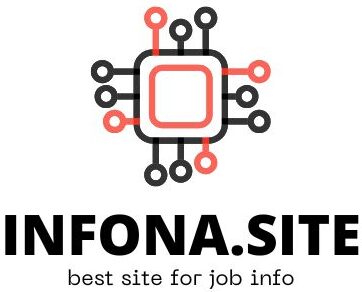With the rapidly changing job landscape of today, FIFO jobs—Fly-In Fly-Out—have emerged as a desirable career option for many. If you are seeking high pay, an unconventional work-life routine, or the chance to work in remote locations without settling there permanently, FIFO jobs provide a unique lifestyle that is attracting interest in various sectors.
But what exactly are FIFO jobs, and what should you know before considering one? In this article, we’ll explore what FIFO work involves, the pros and cons, the types of jobs available, salary expectations, and how to land a role that fits your goals.

What Are FIFO Jobs?
FIFO is an abbreviation for Fly-In Fly-Out, a mode of employment in which employees are flown to far-flung workplaces—usually in mining, oil and gas, or construction work—for a designated time. Having done their stint, they fly back home for a planned resting time. The cycle repeats as long as the contract or job lasts.
For example, a common FIFO roster might be 2 weeks on, 1 week off. During the work period, employees typically stay in company-provided accommodation near the site. Once the rotation is over, they return home for several days or even weeks, depending on the employer’s policy.
Industries Offering FIFO Jobs
While FIFO jobs are most directly related to Australian mining and oil and gas in the U.S. and Canada, they’re increasingly being found in other industries. Some industries where FIFO positions are often on offer include:
-
Mining and Resources
-
Oil and Gas
-
Construction and Infrastructure
-
Renewable Energy
-
Health Services (e.g., remote area nurses)
-
Hospitality and Catering (at remote camps)
-
Engineering and Surveying
Popular FIFO Job Roles
FIFO jobs are available for both experienced professionals and new entrants. Some of the most popular jobs are:
-
Heavy Machinery Operators
-
Drillers and Blasters
-
Electricians and Plumbers
-
Geologists
-
Safety Officers
-
Engineers (civil, mechanical, electrical)
-
Camp Cooks and Cleaners
-
Medical Staff (nurses, paramedics)
No matter your profession, there is probably a FIFO job that is right for you.
Benefits of FIFO Jobs
FIFO work is not merely about traveling to isolated areas—it provides real lifestyle and financial rewards. Some of the main benefits are as follows:
-
High Earning Potential
One of the greatest attractions is the increased pay. Employers usually compensate FIFO employees more because of the isolated conditions, physical labor, and extended hours. Tradespeople and operators in some cases can earn six-figure incomes, particularly in mining and oil industries. -
Work-Life Balance
Although with long shifts, FIFO work allows for longer periods of time off, which enables intense rest and family time. Having a week or more off between rosters can be a significant difference in your personal life. -
Travel Perks
Flights and accommodation are usually paid in full by the employer. This saves on living costs and facilitates saving for workers. -
Skill Development
Working in a FIFO setting exposes you to sophisticated equipment, massive projects, and multicultural teams—providing excellent learning ground and a resume enhancer.
Challenges of FIFO Work
While the advantages are enticing, FIFO work also presents some special challenges. Here’s what you need to consider:
-
Isolation and Loneliness
Being away from family and friends for long periods can take a toll. The remote settings can also feel isolating, especially for first-time FIFO workers. -
Long Hours
Typical shifts range from 10 to 14 hours a day, and it’s not uncommon to work 12 days straight before a break. This can be physically and mentally exhausting. -
Limited Social Life
While camps may provide such amenities as gyms or recreational areas, social options are not as broad as in the city. -
Mental Health Burden
The routine timetable and isolated life may take their toll on mental health. Most employers are, however, bringing in wellness programs for their workers these days.
What You Need to Qualify
Requirements to FIFO jobs are varied by occupation, but these are some basic ones:
Basic Requirements:
-
High school certificate or equivalent
-
Physically fit for physical labor
-
Ability to undergo a medical and drug test
-
Willingness to work and travel away from home
Role-Specific Skills:
-
Trade certificates (for plumbers, electricians, etc.)
-
Mining or oil industry tickets (White Card, Confined Space Entry, etc.)
-
First Aid and CPR certification
-
Associated licenses (e.g., HR truck license)
Training courses for those with little or no experience entering FIFO are also available. Many community colleges and online programs provide mining and safety certifications.
Salary Expectations
Salaries will range broadly based on the industry, location, and your experience level. Here’s an approximate guide:
| Job Title | Average FIFO Salary (Per Year) |
|---|---|
| Driller | $100,000 – $150,000 |
| Heavy Equipment Operator | $90,000 – $120,000 |
| Electrician | $85,000 – $110,000 |
| Camp Cook | $60,000 – $80,000 |
| Site Engineer | $100,000 – $130,000 |
| Nurse (Remote) | $95,000 – $120,000 |
Note: These are Australian dollar amounts and may vary elsewhere.
Where to Find FIFO Jobs
There are a number of sites to assist you in obtaining a FIFO job. Below are some of the best resources:
-
Seek.com.au – Australia’s leading job site
-
Indeed – Excellent for jobs throughout the U.S., Canada, and Australia
-
LinkedIn – Connect with recruiters and employers
-
Mining People International – Expert at resource industry placement
-
Company Websites – Companies such as Rio Tinto, BHP, and Woodside list directly
Make sure to customize your resume and add keywords from FIFO, safety certifications, and work experience.
Tips for Success Working a FIFO Job
-
Get Ready Mentally and Physically
Get a grasp of the psychological and physical pressures of being away from home. Ensure you feel at ease with loneliness and rigorous work routines. -
Establish a Routine
Having a personal routine of exercise, eating, and sleeping may soften FIFO life. -
Stay Connected
Make use of technology to keep in contact with friends and relatives. Frequent video calls and messages assist in lessening feelings of isolation. -
Prioritize Financial Targets
FIFO work is an excellent chance to save. Budget your finances and make good use of your wages. -
Prioritize Mental Health
Utilize support services offered by your employer and consult a professional if necessary. Mental health is as crucial as physical safety.
FIFO Lifestyle: Is It Suitable for You?
The FIFO lifestyle isn’t for everybody. It is rich in rewards but also requires toughness and flexibility. It’s suitable for people who:
-
Love disciplined timetables
-
Can manage remote and solitary settings
-
Need to save money fast
-
Are single or have a stable family arrangement
Families of FIFO workers also must adapt. Some couples make it work by building strong communication habits and open expectations.
Last Thoughts
FIFO jobs provide an attractive combination of high pay, career progression, and work-life balance, but with emotional and physical stresses. If you’re considering a career in mining, oil, or remote-area work, a FIFO job may be the launchpad for you.
Before making the commitment, consider the advantages and disadvantages, speak with existing FIFO employees, and evaluate your own circumstances. With proper attitude and preparation, FIFO work can bring both financial stability and career development.
Looking to investigate FIFO opportunities in your area? Begin by scanning job boards or contacting industry recruiters. Your next career step may be a flight away.

